They Might Be Giants celebrates 40 years
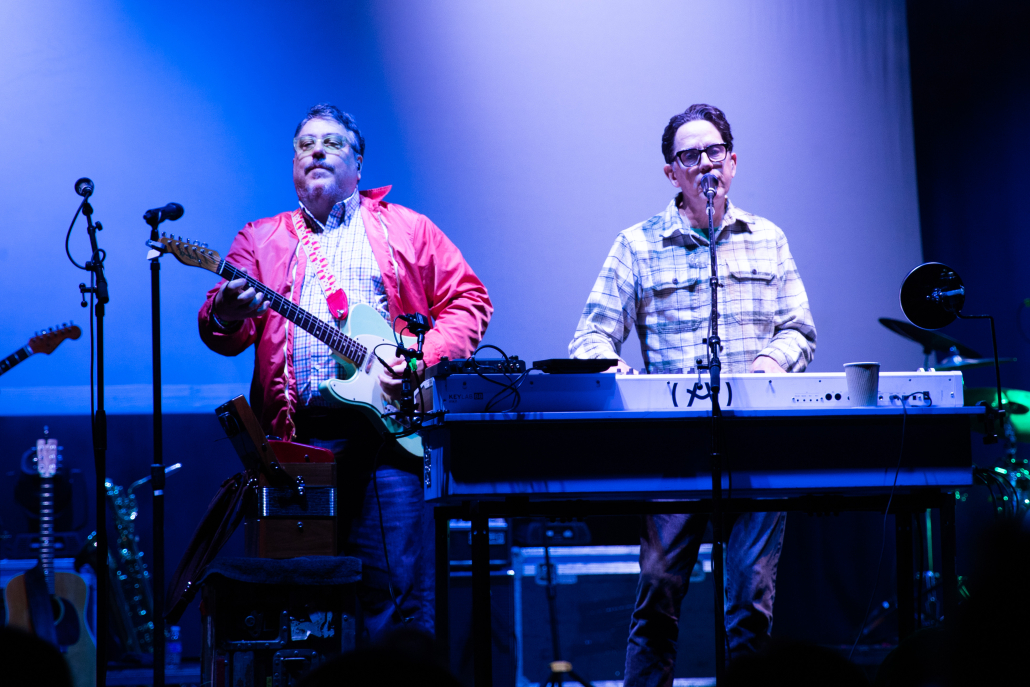
There was a palpable anticipation that swelled as a flood of They Might Be Giants fans covered every inch of available space at The Wiltern on Friday night. Originally set for 2020 but postponed due to the coronavirus pandemic, some attendees had been sitting on their tickets for three years, ardently awaiting this very night.
The founding Giants themselves — John Linnell and John Flansburgh — met working for their high school newspaper. Their mutual love for music unified them, and the rest was history. Twenty-three albums later, the band celebrates its 40th anniversary with an international tour and 80 sold-out shows across the United States.
The lights dimmed and the band’s self-titled track “They Might Be Giants” filled the air, accompanied by a symphony of fervent roars from the sold-out crowd of chanting devotees. There was an immediate shift as the band took the stage and, after a three-year build-up, the audience’s anxious anticipation was suddenly overpowered by a tide of pure elation.
They Might Be Giants has a unique ability to connect with its audience as equals. The Johns welcome fans into their novel world of sea shanties, particle people and Mesopotamians, establishing an environment that celebrates the quirks that brought their audience together — a defining quality of their music as a whole and one of the many reasons listeners continue to stick around.

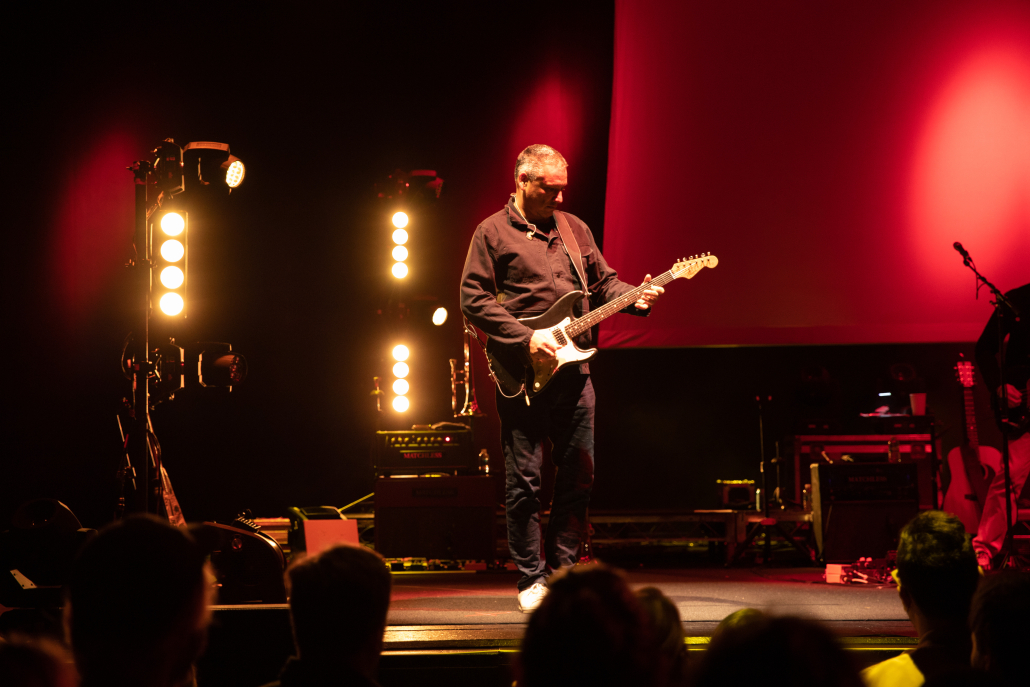
Accompanied by a full band and a selection of brass horns, They Might Be Giants began the performance with an array of songs from its extensive catalog. Throughout its first set, the band highlighted multiple tracks off of its newest Grammy-nominated project “BOOK” such as “Synopsis for Latecomers” and “Moonbeam Rays,” alongside “Flood” fan favorites like “We Want a Rock” and “Your Racist Friend.”
The band’s talent and expertise is undeniable, but in case of any doubts, about halfway through the set, the band recorded a special version of “Sapphire Bullets of Pure Love,” which it had learned backward, with the Johns flawlessly conducting their characteristic harmonies entirely in reverse. To begin the second set after a brief intermission, the recording was played back, reversed as a proof of concept and, lo and behold, they had done it.
The second set began, and the band continued to shell out hits, such as “Whistling in the Dark,” “Women & Men” and “Birdhouse in Your Soul.” They Might Be Giants had the audience in a trance, bellowing in exuberant laughter at Linnell’s quips in between verses of “Why Does the Sun Shine? (The Sun Is a Mass of Incandescent Gas),” and waving their arms in a sea of swaying fingertips to the tune of “Dead.”
The band wrapped up the show with its most popular track — besides the Mickey Mouse Clubhouse theme song — “Istanbul (not Constantinople).” As a spirited send-off, the assortment of brass instrumentalists each received a solo before the start of the song, teasing the audience by scattering its immediately recognizable opening notes within masterful riffs. Two encores later, the night was drawn to its fateful, rapturous conclusion.
They Might Be Giants have been able to curate an impressively diverse catalog over the past 40 years, harboring an audience of devoted listeners by staying true to who the band is.
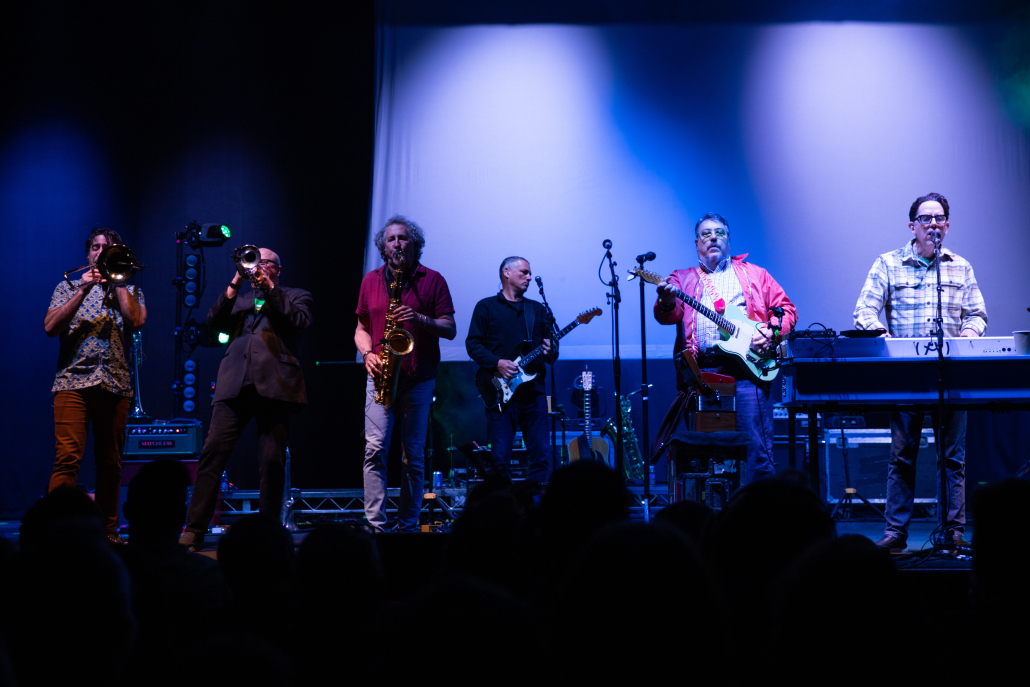
“They really have created an evergreen style of music,” said Kaytee MacDonald, a long-time fan of the band. “They’re kind of a genre unto themselves. You can get into it at any point, no matter what your entry is.”
Many fans’ introductions to They Might Giants occurred in a dingy college dorm at some point throughout the late ’80s and early ’90s. Reflecting on his first time hearing the band, Brendan Hunt — actor and co-creator of the critically acclaimed, widely-loved and award-winning series “Ted Lasso” — summarized this collective experience.
“It was back in the days when people would sit around a coffee table in a shitty student apartment and just be getting high. And somebody’s like, ‘Let me play you this song,’” Hunt said in an interview with the Daily Trojan. “Someone played ‘Kiss Me, Son of God’… A lot of times you hear a song from a band and a switch flips, but this was like a transformer flipping, like, ‘Who the fuck are these guys? I want to know everything.’”
These devoted fans would later birth a new generation of They Might Be Giants listeners, as many introduced their children to the band through one of its five children’s albums. Though some may see a children’s album as derivative, They Might Be Giants has demonstrated otherwise.
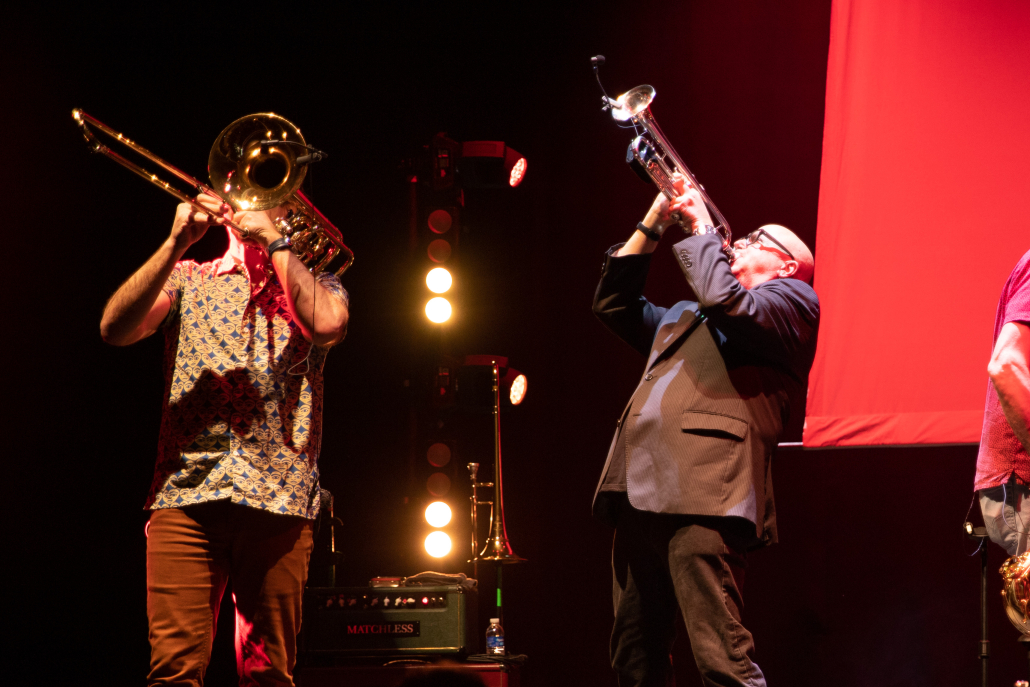
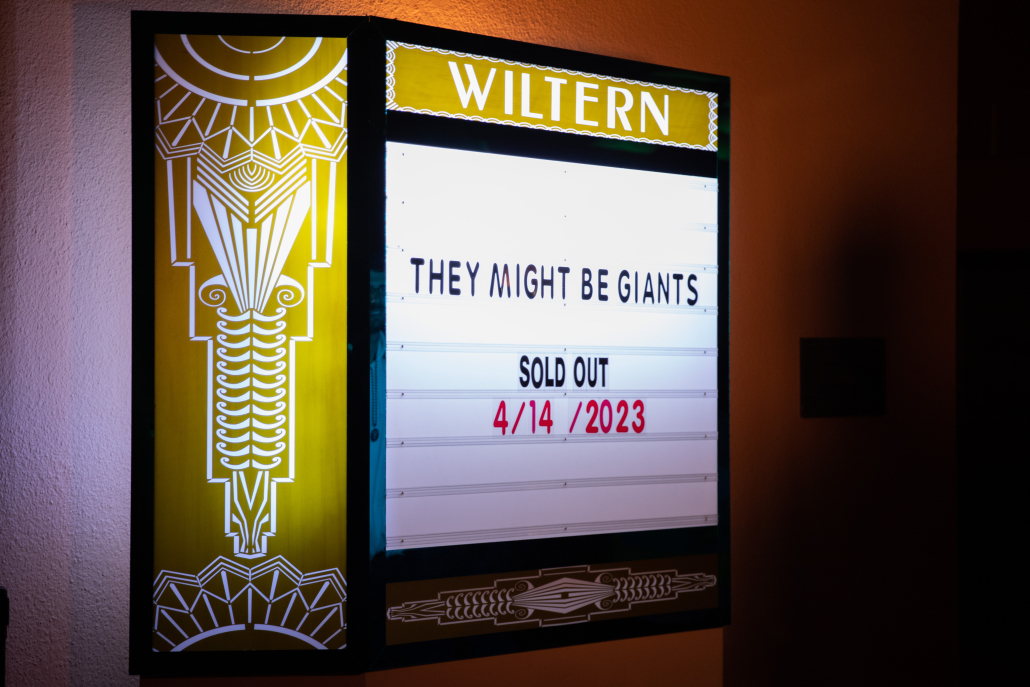
“They show that music that is at the height of its intelligence has an audience,” Hunt said. “They were the first major artists who were like, ‘And, now, a kid’s album,’ … [And] there was no shame in it then either. I’m sure there were people who were like ‘What? Well that’s a bit of a step down.’ And it wasn’t, but now it’s clearer than it ever was before that it wasn’t.”
In sustaining this unabashed integrity throughout its career, They Might Be Giants has proved that the most important qualities to uphold are those that set you apart from others. Through their lyrics and in practice, be it through a song about palindromes or an ancient Turkish city, Linnell and Flansburgh encouraged audiences to stay true to themselves and given them the confidence to feel comfortable doing so.
“I know for sure I’m gonna be all over them for the rest of my life,” said Jasper Halkowich, who’s been a fan of the band since he was “younger than [he] can remember.” “People will always love They Might Be Giants.”

